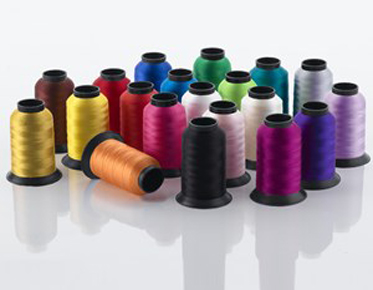Mastering Underlays: A Guide to Perfecting Your Digitizing Embroidery Designs
Hello, fellow embroiderers! As a professional
digitizer from Eagle Digitizing, I'm excited to share some valuable insights on
mastering underlays and enhancing your embroidery designs with embroidery digitizing. In this
comprehensive article, we'll explore various aspects of underlays, including
their types, usage tips, and how they can elevate the quality of your
creations.
I. Understanding Underlays:
Underlays serve as the foundation of any embroidery design, providing stability
and shape to the fill areas. They are like the skeleton that keeps the design
intact and ensures it stands out. By comprehending the importance of underlays,
you can unlock endless possibilities for creating visually appealing and
long-lasting embroidery pieces.
II. Types of Underlays:
In most digitizing programs, you'll come
across different types of underlays. Let's take a closer look at each one:
1. Zigzag Underlay:
The zigzag underlay is ideal for outlining shapes, as it zigzags through the entire area, adding structure and support. It works best when paired with outline stitches, offering a solid foundation for your designs.
2. Edge Run Underlay:
As the name suggests, edge run underlay
creates a simple run stitch around the shape, providing a clean edge and
reinforcing the outline. It's particularly useful for maintaining sharp lines
and preventing distortion.
3. Tatami Underlay:
Tatami underlay is one of the most commonly
used underlays. It creates a solid and stable effect, enhancing the overall
quality of the design. Tatami stitches often go against the shape, ensuring its
stability, especially for larger fills.
4. Double Tatami Underlay:
For designs that require maximum solidity and
stability, the double tatami underlay comes to the rescue. By adding two layers
of tatami stitches, you can achieve a more filled and robust appearance,
particularly suitable for larger shapes.
III. Implementing Underlays:
Knowing when and how to apply underlays is
crucial for achieving optimal results. Here are some key points to consider:
1. Size Matters:
If the shape you're working on is smaller than
one centimeter, there's usually no need for an underlay. However, for shapes
larger than one centimeter, underlays play a significant role in maintaining
stability and integrity.
2. Grid Usage:
Most digitizing
programs offer a grid feature that helps you determine the size of the shape
accurately. By enabling the grid, you can identify whether an underlay is
necessary and make informed decisions accordingly.
IV. Underlays for Outlines:
When it comes to outlining, selecting the
right underlay is crucial. The choice depends on the thickness and desired
stability:
1. Thin Outlines:
For thinner outlines, such as delicate details
or small logos, using underlays may not be necessary. It's best to avoid them
altogether to maintain the intricate nature of the design.
2. Medium to Thick Outlines:
As the outlines become thicker, incorporating underlays becomes more important. Consider using a combination of center run and zigzag underlays to achieve a solid and stable outline that withstands the test of time.
V. Underlays for Fills:
For fill areas, underlays are generally
recommended for larger shapes:
1. Small Fills:
Shapes smaller than one centimeter usually don't
require underlays. Adding underlays to such designs might introduce unnecessary
bulk and compromise the overall quality.
2. Large Fills:
When working with larger fill areas,
incorporating tatami underlays provides stability and enhances the solidity of
the design. It ensures that the shape maintains its form even after repeated
washing or wear.
VI. Experience the Eagle Digitizing Advantage:
Eagle Digitizing offers professional digitizing services that cater to your unique
embroidery needs. Our team of experienced digitizers understands the importance
of underlays and utilizes their expertise to deliver exceptional results.
Whether you're looking to enhance small details or digitize large-scale
designs, our services are tailored to exceed your expectations.
Conclusion:
Mastering underlays is a game-changer in the
world of embroidery digitizing. By understanding the different types of
underlays, knowing when and how to apply them, and customizing them as per your
design requirements, you can take your embroidery projects to new heights.
Remember, achieving exceptional results requires practice, experimentation, and
a reliable custom digitizing service
like Eagle Digitizing. So, go ahead and explore the possibilities of underlays,
and let Eagle Digitizing be your partner in creating remarkable embroidery
designs. Happy digitizing!



